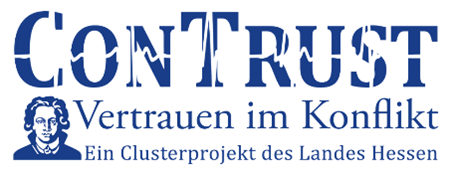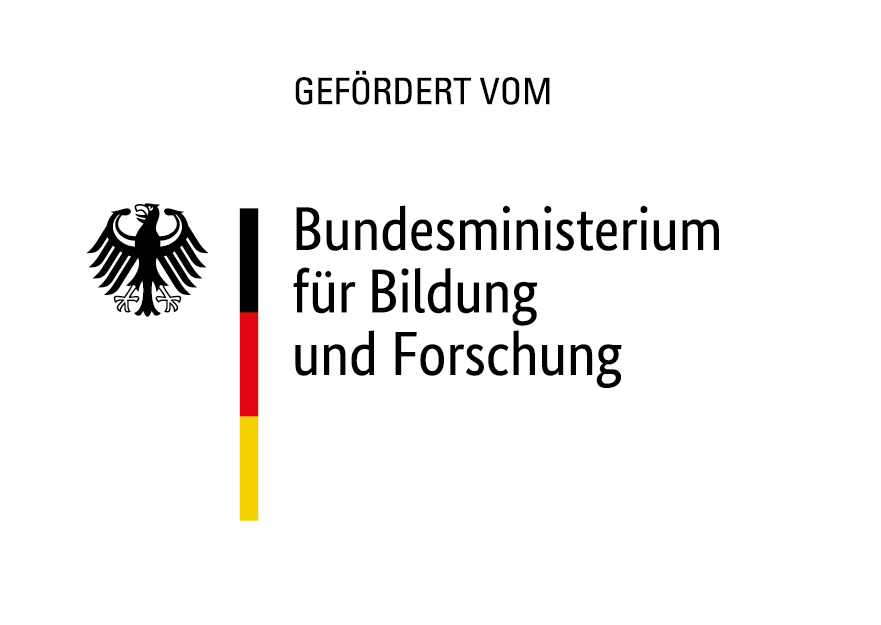Professor Pfeifer's research projects
Research Interests
- Islamist and jihadist actors in the Middle East and North Africa (MENA)
- State and non-state violence in the MENA region
- Global and regional politics of order making in the MENA
- Democratic and non-democratic foreign and security policy
- Liberal world order in transformation
On-going Projects
Research initiative „ConTrust: Trust in Conflict – Political Life under Conditions of Uncertainty“
(funded by the Hessian Ministry of Higher Education, Research, Science and the Arts, Principal Investigator)
Social conflicts are unavoidable, but they do not make it impossible for human beings to live together. But how can we be certain that conflicts will not escalate, that the other parties will abide by the rules, that institutions will protect us against transgressions and that the social world as a whole is sufficiently stable so that we can orient our actions in it in meaningful ways? The answer to these questions is trust. Trust creates a form of 'insecure security' that can never be fully redeemed and yet it holds the secret of social cooperation. But how is trust being formed, what are its sources?
Hanna Pfeifer is part of the working group on knowledge and works on a project on how school education under conditions of changing rule in conflict zones affects epistemic trust, i.e., trust in knowledge as well as institutions and processes of knowledge production. She analyses the case of Iraq between 2000 and 2020.
 |
Recasting the Role of Citizens in Foreign and Security Policy? Democratic Innovations and Changing Patterns of Interaction between European Executives and CitizensFor the last decade, European democracies have witnessed several instances of a previously unknown involvement of citizens in political issues with a global dimension. Politicians and members of national executives in Europe have started to actively engage citizens in policy- and decision-making processes in the field of foreign and security policy (FSP). In fact, some governments, as well as international organisations such as the European Union (EU), have been initiating dialogue and participation processes, aiming at a larger inclusion of civic organisations, scientific experts and, remarkably, ordinary citizens in FSP. Our project investigates this change of the role of citizens in the field of FSP. More specifically, we reconstruct how and why national governments introduce democratic innovations (DIs) to this policy field, usually considered as being dominated by the executive. We assume that understandings of how relations between the executive and citizens should be organised, as held by ministerial elites in FSP, have changed in some countries during the last decade. These changes of the citizen's role also have ramifications for the politics in FSP, notably the intra- and inter-ministerial processes of policy- and decision-making, as well as relations between the executive and legislative in this policy field. In order to analyse why executive actors (do not) offer DIs, we apply a small-n and cross-national comparative method. We empirically map and theoretically conceptualise executive-citizens relations in FSP by comparing the cases of France, Germany, Poland, and the UK. A more detailed project description can be found here. Funded by the German Research Foundation, Principal Investigator (in cooperation with Anna Geis and Christian Opitz from Helmut-Schmidt-Universität/Universität der Bundeswehr Hamburg) 2022-2025. |
Regional Research Center "Transformations of Political Violence",Research Field 1 – Forms: Change and Continuity of Political Violence.
Over the last decade,
civil wars that broke out in the aftermath of the Arab uprisings have been
marked by their increased internationalization. Next to “typical" interveners
in the region, i.e., the US and its Western allies who are militarily active at
different levels, with varying intensity, and mainly in the name of
counter-terrorism, other actors have emerged as (assertive) regional players
who pursue their ordering goals with violent means. They sometimes cooperate
with the “Western concert" but sometimes also act unilaterally or in (new and
shifting) regional alliances. The project pursued in the context of TraCe seeks
to understand the emergence of military interventions as pursued by Arab states
in the wars in Libya, Iraq, Syria, and Yemen, as well as the way in which
cooperation among them, and between them and Western states, is organised.
Funded by BMBF (in cooperation with PRIF, JLU Gießen, Universität Marburg and Technische Universität Darmstadt).
- Studying at Goethe University
- International applicants
- Faculties
- Overview of study programmes
- Programme for refugees
- GRADE
- Goethe Business School (continuing education)
- Research at Goethe University
- Scientific news
- Goethe Welcome Center (for international researchers)
- Collaborative research projects
- Individual research
- Visiting fellowships
- Endowed chairs
- About the University
- News-in-brief
- University administration
- Campus locations
- Campus life
- University archives (German)
- Rhine-Main-Universities







